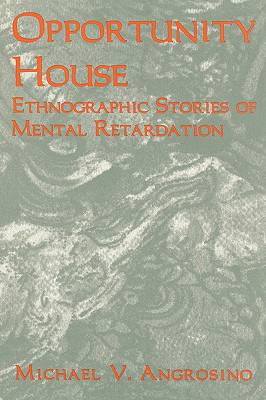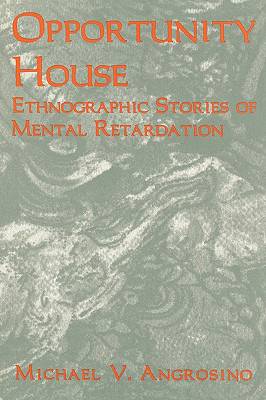
- Afhalen na 1 uur in een winkel met voorraad
- Gratis thuislevering in België vanaf € 30
- Ruim aanbod met 7 miljoen producten
- Afhalen na 1 uur in een winkel met voorraad
- Gratis thuislevering in België vanaf € 30
- Ruim aanbod met 7 miljoen producten
Zoeken
€ 100,45
+ 200 punten
Uitvoering
Omschrijving
Calling on a decade of participant observation at a residence for mentally retarded adults, anthropologist Michael V. Angrosino's riveting and de-mystifying account offers an insider's picture of the lives of the inhabitants of Opportunity House. Using the narrative device of a dozen fictional short stories told in the voices of various community members as well as that of the researcher, Angrosino weaves a life-histories approach to ethnography together with an innovative culture concept to tackle the complexities of representing marginalized subgroups. As opposed to traditional clinical or statistical studies, which have insufficiently conveyed the subjective and experiential perspectives of retarded people themselves, Angrosino presents an intimate and complex picture of a highly functioning community with its cast of entrepreneurs, bullies, victims, and do-gooders. This wonderfully readable and captivating account is therefore an important resource for those interested in mental illness and disability, as well as a model for those experimenting with forms of ethnographic writing.
Specificaties
Betrokkenen
- Auteur(s):
- Uitgeverij:
Inhoud
- Aantal bladzijden:
- 232
- Taal:
- Engels
- Reeks:
- Reeksnummer:
- nr. 2
Eigenschappen
- Productcode (EAN):
- 9780761989172
- Verschijningsdatum:
- 2/12/1997
- Uitvoering:
- Paperback
- Formaat:
- Trade paperback (VS)
- Afmetingen:
- 153 mm x 229 mm
- Gewicht:
- 421 g

Alleen bij Standaard Boekhandel
+ 200 punten op je klantenkaart van Standaard Boekhandel
Beoordelingen
We publiceren alleen reviews die voldoen aan de voorwaarden voor reviews. Bekijk onze voorwaarden voor reviews.











